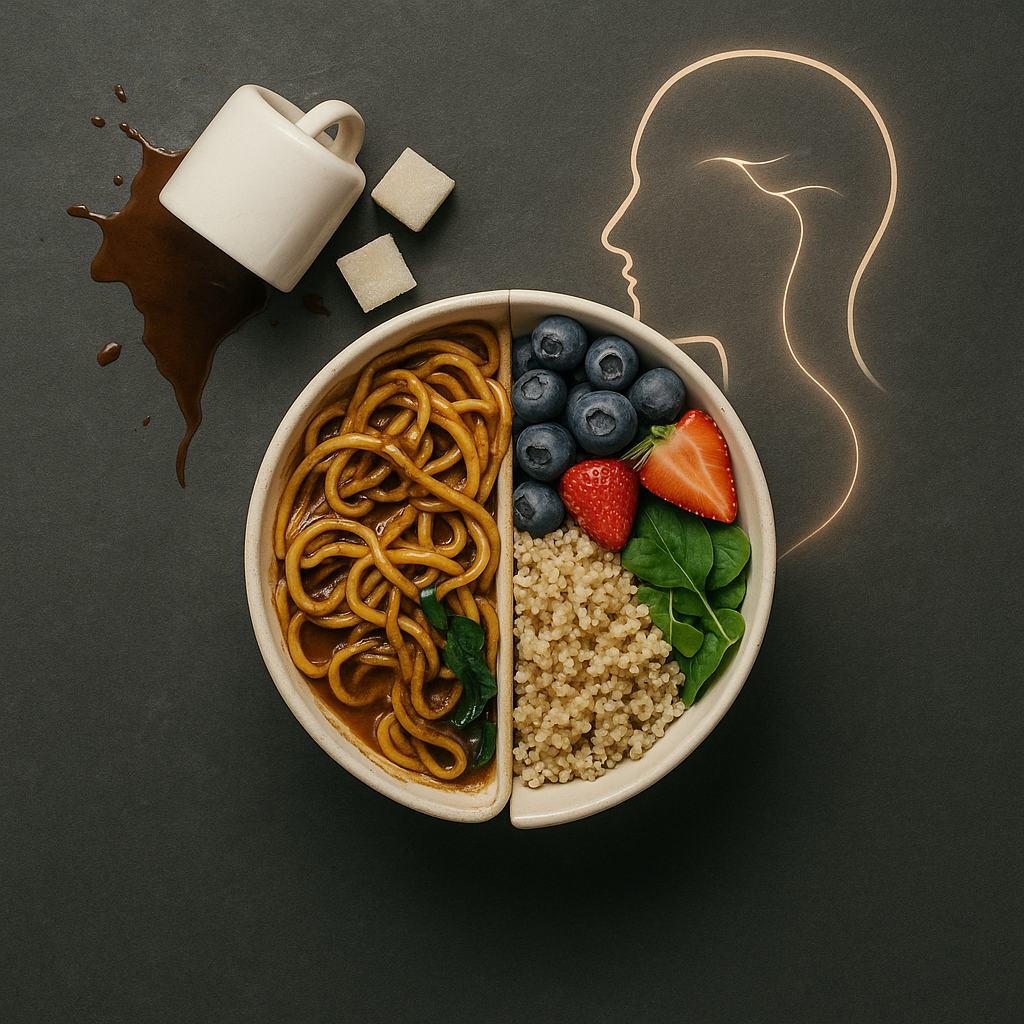Stress on Your Plate: How Diet Protects Against Burnout

Stress is unavoidable—but burnout doesn't have to be. Emerging evidence shows that nutrition plays a protective role in how well our bodies and minds cope with chronic stress.
How stress depletes nutrients
When the stress hormone cortisol stays elevated, it depletes key vitamins and minerals such as magnesium, vitamin C, and B-vitamins (Kennedy, 2016). These nutrients are essential for regulating the nervous system, supporting adrenal health, and producing neurotransmitters. Without replenishment, fatigue and mood swings intensify.
Foods that buffer stress
Magnesium: Found in spinach, pumpkin seeds, almonds, and dark chocolate. Studies show magnesium supplementation reduces stress and improves sleep (Boyle et al., 2017).
Vitamin C: Citrus fruits, kiwi, and bell peppers lower oxidative stress and support cortisol balance. Supplementation has been shown to reduce anxiety in stressful situations (Brody et al., 2002).
B-vitamins: Whole grains, eggs, and legumes supply cofactors for neurotransmitter synthesis, helping prevent "adrenal fatigue."
Diet patterns and burnout
A large cohort study found that diets high in ultra-processed foods were associated with increased risk of depression and anxiety (Adjibade et al., 2019). On the other hand, the Mediterranean diet—rich in vegetables, legumes, fish, and olive oil—has consistently been linked to lower levels of stress and burnout symptoms (Lassale et al., 2019).
Practical strategies
- Swap your afternoon pastry for a handful of almonds and a mandarin orange.
- Batch-cook grain bowls with quinoa, chickpeas, and leafy greens for nutrient resilience.
- Prioritize hydration, since even mild dehydration amplifies perceived stress.
References
Adjibade, M., et al. (2019). Prospective association between ultra-processed food consumption and incident depressive symptoms. Nutrients, 11(7), 1686. https://doi.org/10.3390/nu11071686
Boyle, N. B., et al. (2017). The effects of magnesium supplementation on subjective anxiety. Nutrients, 9(5), 429. https://doi.org/10.3390/nu9050429
Brody, S., et al. (2002). Daily vitamin C intake and cortisol response to stress. Psychopharmacology, 159(3), 319–324. https://doi.org/10.1007/s00213-001-0929-6
Kennedy, D. O. (2016). B vitamins and the brain: Mechanisms, dose and efficacy—a review. Nutrients, 8(2), 68. https://doi.org/10.3390/nu8020068
Lassale, C., et al. (2019). Mediterranean diet and the risk of depression: A systematic review. Nutritional Neuroscience, 22(7), 474–487. https://doi.org/10.1080/1028415X.2017.1411320